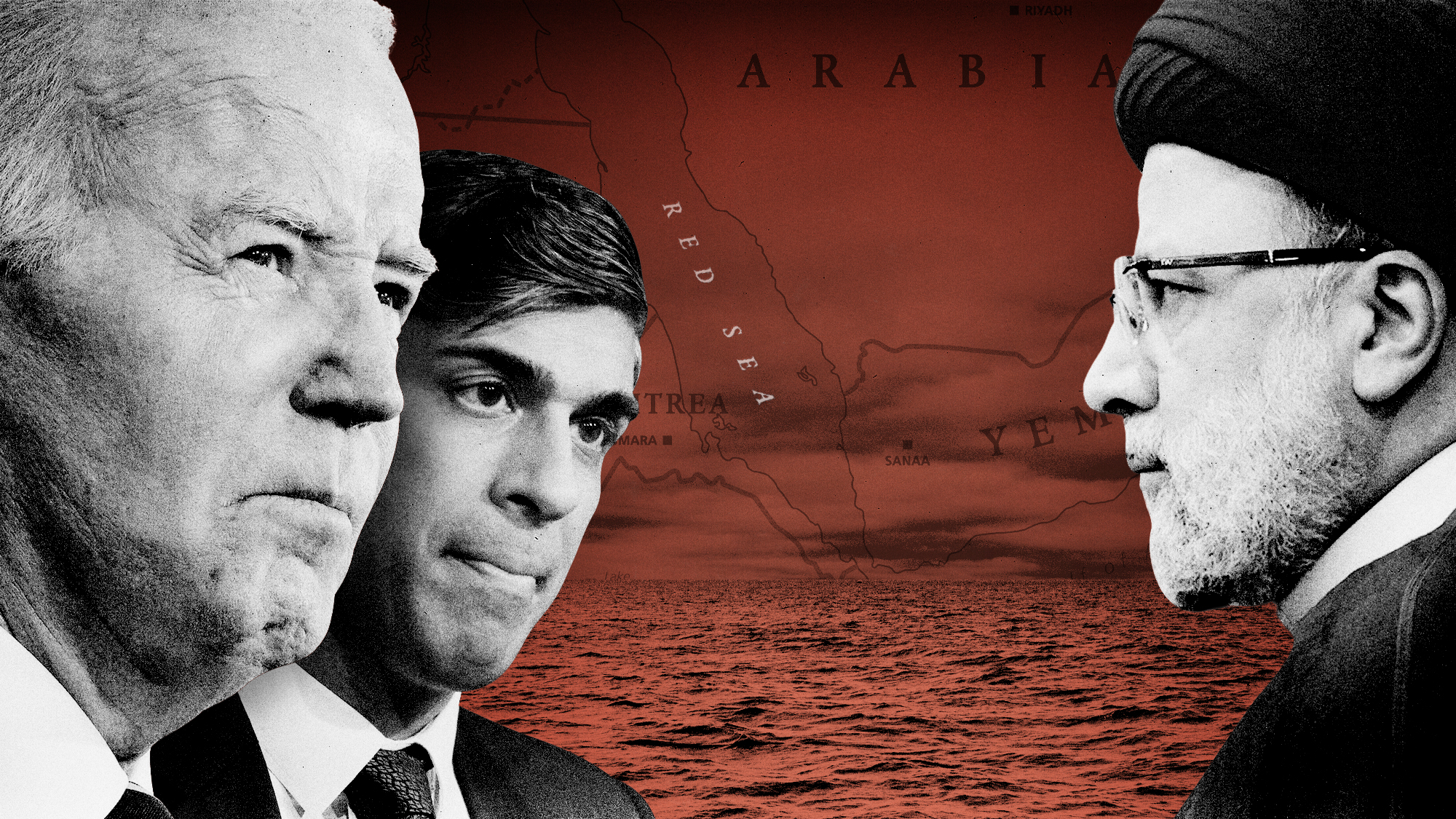Will US-UK strikes in Yemen cause direct confrontation with Iran?
Military action risks prompting retaliation and drawing both sides into a protracted conflict

A free daily email with the biggest news stories of the day – and the best features from TheWeek.com
You are now subscribed
Your newsletter sign-up was successful
Iran has denounced American and British military attacks on Yemen as "a clear violation of the country's sovereignty".
Washington and London launched air and naval strikes against military targets linked to Houthi rebels last night, in response to the group's attacks on ships in the Red Sea in support of Hamas in Gaza.
The Houthis, a group of rebels that control a large part of Yemen, are allies of Iran, because Saudi Arabia is their common enemy. So the US-UK attacks have raised fears of a direct confrontation between the West and Iran.
The Week
Escape your echo chamber. Get the facts behind the news, plus analysis from multiple perspectives.

Sign up for The Week's Free Newsletters
From our morning news briefing to a weekly Good News Newsletter, get the best of The Week delivered directly to your inbox.
From our morning news briefing to a weekly Good News Newsletter, get the best of The Week delivered directly to your inbox.
What the papers said
The Houthis were "quick to claim they would retaliate", said Deborah Haynes, security and defence editor of Sky News. "Any major counterattack could push the Western allies into direct confrontation with Iran."
Such a confrontation is "something both sides have said they want to avoid", she added. But the West's attacks are still a "high-risk balancing act", because "hit the Houthis too hard and their supporters, most notably Iran, would have to strike back more significantly".
The Telegraph agreed that the air and sea strikes against Yemeni sites "run the risk of prompting retaliation in some form" from Iran, which "for years has built up the Houthis’ weapons supplies in its ten-year-long proxy war in Yemen against Saudi forces".
The "greatest fear", said The Guardian, is that in the "aftermath of the overnight strikes", the US, the UK and their allies are "a significant step closer to direct confrontation with Iran".
A free daily email with the biggest news stories of the day – and the best features from TheWeek.com
Any effort to "blunt" the Houthi threat to shipping is likely to require "aggressive action to stop the Houthis replenishing their arms supply", the paper added. And that "in turn means stopping ships coming from Iran".
The West "shouldn't fear a direct confrontation with Tehran", argued Con Coughlin, The Telegraph's defence and foreign affairs editor, last month. Iran and its Houthi "sidekicks" are "no match for the powerful armada of Western warships" assembled in the Red Sea.
But a confrontation with Tehran in 2024 would be a more dangerous scenario than in the past, argued The New York Times, because Iran's power has increased significantly since Russia's invasion of Ukraine.
Iran is "suddenly in an alliance of sorts with both Moscow and China", meaning it has two superpowers "not only as allies, but as sanctions-busting customers". The paper added that Iran is now a "screwdriver turn away" from possessing a nuclear bomb.
What next?
Many eyes will be on the economic fallout from the strikes. Oil prices rose on news of the American and British attacks, reported The Economist, and "if Iran becomes directly involved, they could rise much further".
This morning, the price of Brent crude – the international benchmark for oil prices – rose by 2% to almost $79 per barrel, while US West Texas crude increased by 2.1% to $73.55.
According to the BBC, the UK's Treasury has "modelled scenarios" including crude oil prices rising by more than $10 a barrel and a 25% increase in the cost of natural gas.
The government is concerned that ongoing attacks on shipping in the Red Sea could "further shrink the UK economy if disruption goes on to affect tanker traffic more widely", added the broadcaster.
Yahya Sarea, the military spokesperson for the Houthis, said the group "will not hesitate to target sources of threat and all hostile targets on land and at sea in defence of Yemen, its sovereignty and independence". He added that Israeli and other ships in the Red Sea would continue to be targeted by the group.
"Does it stop at this?" asked Mark Stone, US correspondent for Sky News. It seems "unlikely", he suggested. But the West didn't want to take this action and "the Iranians too don't want war with the West", so "the only positive here is that no one actually wants conflict".
Chas Newkey-Burden has been part of The Week Digital team for more than a decade and a journalist for 25 years, starting out on the irreverent football weekly 90 Minutes, before moving to lifestyle magazines Loaded and Attitude. He was a columnist for The Big Issue and landed a world exclusive with David Beckham that became the weekly magazine’s bestselling issue. He now writes regularly for The Guardian, The Telegraph, The Independent, Metro, FourFourTwo and the i new site. He is also the author of a number of non-fiction books.